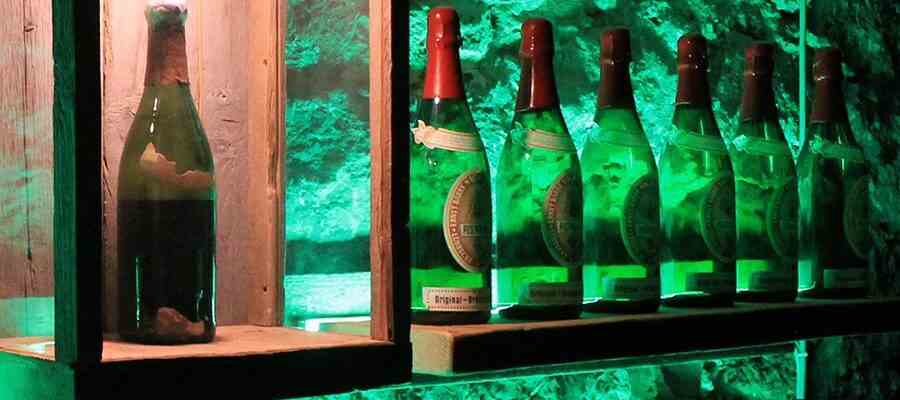It is almost 140 years old, Germany’s oldest surviving bottled beer. Bottled in the imperial era in 1885. Researchers at the Technical University of Munich (TUM) have now had the honor of opening it, analyzing it – and even tasting it. One of them is Martin Zarnkow, 55, head of the technology and development department at the Weihenstephan research center for brewing and food quality. He is also a quality inspector for beer at the German Agricultural Society (DLG). For the native of Nuremberg, the investigation was “not routine” but something extraordinary. The scientist tells how the historical drink tastes, why it has lasted so long and how it differs from modern beer.
SZ: Together with colleagues you recently published a study on Germany’s oldest beer from 1885. How did you come across this?
The Barre brewery from Lübbecke approached us and said they had this special find that had been in their museum since the 1970s. She had made up her mind, and that’s what’s so special about allowing the drink to be accessed. It was anything but routine.
Where does the beer originally come from?
There is another industrial company in the city of Lübbecke. In this other company, the bottle was probably hidden in a safe for many decades. This safe was in an office and it had been bricked up. To be honest, I’m not sure if any of this is true, but that’s what I was told. Crucially for us, it was always under atmospheric conditions.
Why is this important?
We usually get such samples from shipwrecks on the seabed, and I’m always quite critical of them. Of course, they are perfect in terms of temperature, always nice and cold. No light, no oxygen can have any influence. But I’m never sure if salty sea water doesn’t get in.
Did storage affect the composition of old Barre beer?
The surprising thing for us was that it corresponded very, very precisely to the beers of the time, in terms of alcohol content and residual sugar content. So we have to assume, even if we look at the label, that the beer has not changed in terms of these characteristics.
How did the beer last so long?
That’s no problem at all. A properly bottled beer can last for centuries. The best before date does not mean that the beer can break if it is over it. Nothing pathogenic can grow in a normal beer, with a non-alcoholic beer it is of course different. A normal beer has a certain alcohol content, a CO2 atmosphere and bitter substances that protect and it has almost no residual sweetness. Microorganisms no longer have anything to metabolize. In addition, the acidity is below 5.0. So we had no qualms about trying the beer. This was also confirmed by my colleagues Hutzler, Schmitt-Kopplin and Piezconka with their analyses.
How did it taste?
This is really a great beer. Incredibly harmonious. It has those flavors of age, but they’re very positive, like dried fruit, plum and cherry. It hasn’t gotten any heaviness as a result, but is in a certain way lean and easy to drink. It also has a pleasant bitterness and the acidic character, so the refreshing character is really flawless. You can perhaps compare it to a slightly older, dark lager. Although it’s a pilsner, but that has actually changed with aging.
How does historical beer differ from modern beer in terms of production?
The exciting thing is that, as far as we know, the production of beer at the Barre brewery in Lübbecke in 1885 was probably a very modern production. First, they brewed according to the Purity Law, which they didn’t have to do. It was not within the scope of the statutory purity law in Bavaria. And she implemented this modern brewing process, which is still largely valid today. For example, the beer was filtered. Filtration had been invented just a few years earlier.
You have been researching beer for 25 years. How did you get this job?
I’ve always known that, since I came out of puberty, that I wanted to be a brewer. I don’t actually come from a brewing family, but I’ve always been fascinated by the subject of food production. Of course I like beer too. This is elementary for the assessment and the technology. Our professor Ludwig Narziß, who will be 97 in a few days, still says to this day: Bring me the beer first and then we’ll talk about the technology.

